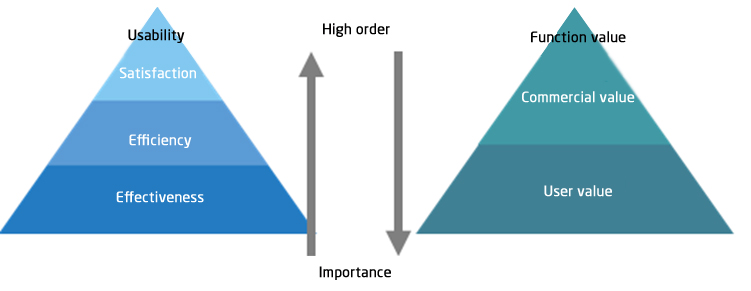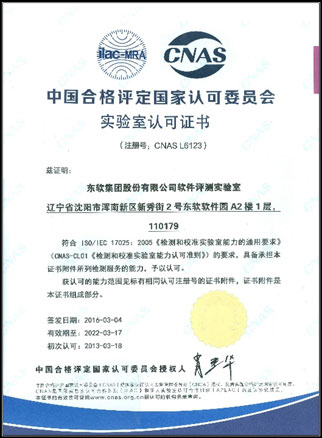Appropriately organize and apply testing methods and techniques after comprehensive analysis. Focus on a certain feature of a test object by mainly applying black box testing, flexibly using gray box testing, and partially adopting automated testing. Contribute more to practically implementing testing in agile development and to ensuring usability, reliability, interchangeability, etc. of test objects.
quick access:
Automated Testing
Utilize professional knowledge & frameworks to conduct automated testing and to ensure test speed, innovation and excellent quality. Boast years of experience in executing automated testing projects for global customers and a large number of experts in automated testing.
Web Automated Testing
Automated testing can detect errors and evaluate and verify system quality at an early stage, which effectively facilitates repeated testing. Specifically, in a reliable and efficient web service development process, automated testing is of great importance for evaluating the functions, performance and scalability of web services.
In this fast-paced world, faster testing cycles at lower costs is crucial for a company to maintain its competitiveness. Therefore, reusable automated testing frameworks plus open source tools and technologies become the key solutions to cut testing cycles and related costs.
Test Automation framework for Web services:
Easy-to-learn and easy-to-maintain script syntax
Provide simple and intuitive script syntax on the user perspective and a visualized script editor. Enable fewer impacts from interface changes and better playback stability through the flexible and scalable assertion methods and the decoupling of test data from tests scripts.
Highly reusable test cases
A same set of test case can be used for functional regression testing, compatibility testing, and stability testing, and is compatible with mainstream browsers and mobile devices. Test cases can be easily obtained and executed by testing, R&D, and implementation teams.
Flexible scalability throughout the life cycle
Ensure the consistent software management throughout the life cycle by customizing script syntax, test reports, and test data which can be integrated with the third-party defect management tools, continuous integration tools, etc. and fully reusing the original assets and management specifications
Full control of quality and progress
Rely on Web management tools to provide real-time, rich, and visualized statistical analysis, all-round control on the automatic testing progress and dynamic quality trends of projects, and higher transparency of delivery progress and quality risks.
Automated Testing for Mobile Terminals
“About 60% of customers will look elsewhere if they can’t find what they need on a mobile website right away, and 35% say that they will switch to a competitor’s app after a bad app experience. (Abstracted from TWEET)
Let’s face it – Mobile Apps have invaded our lives. Mobile devices enable most things. So, to popularize an app, you not only need to test its functionality, but also need to ensure it works well on the huge variety of mobile devices, platforms, OS and networks that we have today. In essence, mobile testing is a tedious process, which makes it necessary to introduce test automation.
Relying on business-driven testing and our own cloud platform resources, we implement automated testing for mobile terminals on physical devices and numerous platforms and operating systems as well as networks to ensure the test coverage and ROI.
Exploratory Testing
Currently, the two common types of guiding principles for exploratory testing are “cases supplemented by explorations” and “explorations supplemented by cases”. We boast self-developed exploratory testing guidelines and complete practical project experience ranging from principles, policies, schemes, test methods, test management, and test result analysis and improvements to keep driving the evolution of exploratory testing.
Exploratory testing schemes vary with test purposes.
- Find as many defects as possible to remove defects.
- Detect Blocking as early as possible and reduce risks to find major problems.
- Ensure MTBF to enhance confidence.
Implementing Policies
Focus on the three aspects of knowledge inheritance, progress control, and product quality and consider specific requirements to formulate test schemes, plan test cycles, screen test indicators, define results as well as quantitative and qualitative measurement indicators.

Test Management & Techniques
- Session-Based Management
- Definition of quality ranks
- Main test methods including “Build Verification Testing”, “Strategy/Experience Testing”, “Feedback/Analysis-Based Testing” and “Scenario-Based Testing”.
- 33-plus kinds of test techniques used to implement exploratory testing under unclear requirements.
Result Analysis of Exploratory Testing
- Result analysis
- Continuous improvements in exploratory testing
Usability Testing
A whole set of methods and techniques has become necessary to test and evaluate usability. Improving product/service usability by observing, recording and analyzing users’ behaviors and feelings also significantly reflects the user-centric design idea.
In usability testing, we mainly evaluate (focus on) the three aspects: effectiveness, efficiency and satisfaction:

Ensure the quality of usability testing by centering on users, taking quality as the premise, referring to the ISO standard and the Nielsen principle, and provide the following benefit-based services.
Recruitment of target users
- Select target users mainly from those to whom the tested product is oriented with the supplement of other users
- Mainly choose consumers with multiple roles as target users
- Do not reveal any product information to target users
Task scheduling
- Set different scenarios
- Establish different user models
- Deploy the environment
- Try the best to fit the actual environment of the tested product
- Try the best to place recorders, cameras and other equipment at an inconspicuous location
- Do not use professional terminology when communicating with target users lest that they feel nervous
Analysis feedback
- Hear users’ feedback through “voice thinking”, “focus team discussion” and other methods
- Quantitative and qualitative feasibility analysis
- Put forward feasibility improvement plans from different evaluation dimensions
Performance Testing
Performance acts as an important indicator to measure the quality of an IT system. During the running processes of an IT system, a light performance problem can cause slow operations and user complaints, and a serious one can cause a system crash and operation halt. That will directly affect an enterprise’s normal production and operation and bring incalculable economic losses. Therefore, how to build an IT system that supports high-load operations, provides efficient business processing, timely responds to user requests, and reasonably occupies system resources becomes the key priority during an enterprise’s digital transformation process.
Neusoft Performance Engineering Services can help your company discover, control, manage and eliminate potential system performance problems as early as possible at all stages of your system construction. Thus, you company or organization can fully exert the productivity of the existing equipment with the improved work efficiency and end user satisfaction and the continuously promoted expansion of business scale.
Advantages
Performance expert team
Own an expert team with over two decade’s continuous dedication to performance technical support and with solid technological capabilities in multiple knowledge areas related to enterprise software and hardware. Enable interdisciplinary insights into the root causes of performance inadequacy and system crashes.
Multi-industry knowledge base
Possess a knowledge base of performance solutions accumulated based on over 200 technical support and service projects for such sectors as telecommunications, finance, government, healthcare, transportation, education, and Internet. Enable the rapid and accurate problem finding and solving.
Nationally recognized qualification
Hold the software evaluation qualification granted by China National Accreditation Service for Conformity Assessment (CNAS), with the organizational, institutional, procedural and technical guarantees for the objective, accurate, scientific, complete, and credible test results.
Service Contents
Provide multilayer, all-around, rapid, accurate and effective performance planning, evaluation, optimization and management services for your core business system through our expert team boasting technological capabilities in network, storage, servers, operating systems, middleware, databases, codes and other sectors with years of experience in performance assurance for core business systems of all domains.
Performance Planning
A process of technological decision-making during the system design stage. Consider the existing and future business design levels, resource consumption, and staff sizes, as well as historical experience and business characteristics and use mathematical formulas to help you plan the software and hardware resources and technology routes to be needed by your IT system under a certain future development trend.
Performance Evaluation
A process where a series of procedures, means, and methods are used to get the system performance data under certain hardware and software configurations and parameter settings in a stimulated business scenario with concurrent access pressure exerted to the system to be tested. Enable the early detection of the deeply hidden bugs exposed only after long-term continuous operations yet affecting system performance and even causing a crash, with warnings given to the system construction unit.
Performance Optimization
A process of analyzing, diagnosing and solving the performance problems detected after system performance evaluation and locating and optimizing the bottlenecks of such modules as have failed to meet performance requirements. A system with optimized performance enables less risk of performance inadequacy and system crash and thus ensures normal system operations and controllable operating costs.
Performance Management
Provide continuous performance guarantees for your production system and performance testing for your IT system. Especially, carry out trend analysis on such system performance data as load capacity, concurrency capacity, response speed, throughput capacity, reliability, and resource utilization efficiency for a thorough understanding of these indicators. In case of business expansion, the data analysis results serve as a basis on which appropriate increases in the configuration plan can be proposed to enhance resource utilization efficiency; these analysis results can also provide a quantitative basis for business decision-making.
Evaluation Services of Neusoft Software Evaluation Laboratory (CNAS Services)
Laboratory Induction
Established in 2013, Neusoft Group Co., Ltd. Software Evaluation Laboratory (CNAS Lab), a software evaluation agency recognized by China National Accreditation Service for Conformity Assessment (CNAS), provides software evaluation services including confirmation, systems, acceptance, and regression for the software products and solutions oriented towards various industries and domains.
By focusing on practicality, scientific normalization, quality and pragmaticality, CNAS Lab has established a set of complete, efficient and professional testing procedures with good testing environments to provide software suppliers and users with highly credible testing results and win-win solutions.

Advantages
Authoritative Qualification
CNAS Lab has won the recognition from China National Accreditation Service for Conformity Assessment (CNAS), and the Lab boasts internationally standardized testing quality and capabilities. Its teasing capabilities have been recognized by over 100 countries or regions in the mutual recognition agreement.
Rigorous system
By adhering to the principle of “strict software quality control”, the Lab has developed a strict quality control system to ensure fair and reliable test results and to fulfill our responsibility to software suppliers and users.
Excellent capabilities
The Lab meets the provisions in the latest national standard, GB/T 25000.51-2016 (ISO / IEC 25051: 2014) Software Quality Requirements and Evaluation (SQuaRE) of System and Software Engineering System. In the review conducted in 2018, the Lab passed the proficiency testing with a full score.
Comprehensive range
including functionality, performance efficiency, compatibility, usability, reliability, information security, maintainability, portability.
Scenarios
Project Acceptance
A test report or inspection report provided by a nationally recognized institution is an essential acceptance indicator for the science and technology projects owned by universities, research institutes, and enterprises and the software projects owned or funded by the government. With the nationally recognized software evaluation capability, CNAS Lab provides cost-effective testing services for software project acceptance.
Software Export
With recognition from more than 100 countries or regions within the mutual recognition agreement, CNAS Lab provides authoritative and internationally credible testing. The export software products tested by the Lab are subject to less repeated testing in destination countries and thus become more competitive in international markets.
Security Testing
Due to the increasing number of privacy leaks an organization faces, security testing has become a definite key part of an organization’s development strategy. Besides function and performance, security has become another measure dimension for products. In security testing, specific testing techniques are adopted to evaluate Web system security, to find out hidden security risks, and thus to improve application system security.
Through our own security evaluation process combined with the standards and specifications of the Web application security industry (threat classification issued by WASC, vulnerabilities issued by OWASP, etc.), we provide high-quality security testing services:
Complete the preliminary survey in the initial stage
- Investigate application systems
- Analyze the requirement survey
Complete preparations for execution in the refinement stage
- Build an environment
- Import data
- Design schemes/business cases
- Debug test tools
Carry out testing based on the key business in the scheme in the implementation phase
- Use automated security evaluation tools to execute testing
- Collect data and obtain evaluation results
Provide a complete summary report on security testing and evaluation in the delivery stage
- Provide all information except risk assessment
- Provide relevant statistical analysis data such as defect results and business defects.
- Macro-evaluate this testing and give constructive improvement suggestions
Windows Standard Compliance Testing
We boast rich testing experience in Windows standard compliance testing to ensure the good quality of software products.
In the meantime, as Microsoft’s Windows Pre-Release partner, we can get the latest Release version and changes and can participate in Microsoft’s explanation meeting on new system changes. That enables us to obtain relevant information more timely, accurately and effectively.
Windows Design Guideline Testing
With the popularity of Windows 10 systems, UWP applications have already dominated the PC-side application market. Thus, there comes an extremely important need to check and change Windows design guidelines.
For UWP applications, we test the following features:
Effective pixels and zoom
- Automatic adjustment of UI with different carrying platforms
- Coordination of controls, fonts and other UI elements
- Clear overall images
Support for intelligent input
- Support for touch screen and voice recognition
- Convenient operations
Requirements for general design styles
- Design styles of window controls, charts, views, etc.
- Application of fonts, sizes and colors
Support for specific devices
- Equipment with fixed sizes and small sizes
Windows Application Certification Kit Testing
Windows ACK testing for UWP and Desktop apps can help us find problems locally as early as possible and save lots of store review time. At least two Windows ACK tests should be scheduled in a project cycle. The early testing can provide evaluation and correction bases for developers, while the inspection before acceptance testing will give the final evaluation results.
Test contents:
- Windows security features test
- Windows runtime metadata testing
- APP manifest compliance test
- Deployment and start-up testing
- Soundness testing for packages
- Debug configuration test
- App manifest resources test
- Crashes and hangs test
Application Verifier Testing
For unmanaged programs, Application Verifier testing based on Windows SDK helps find tiny programming errors, security problems, and restricted privilege of user accounts. Such errors and problems are hard to be identified by conventional application testing techniques. In case of any Windows version update or a major function change from an application APP itself, we will implement Application Verifier testing to create a reliable and secure application.
App Verifier helps determine:
- The moment to correctly use APIs
- Whether to use structured exception handling to hide access violations
- Whether to try using an invalid handle
- Whether memory goes corrupted or wrong in the stack?
- Whether memory is run out under insufficient resources
- Whether the critical section is correctly used
- Whether the App can run normally in a low configuration environment
- Whether any potential problem exists in the operation by a restricted user
























